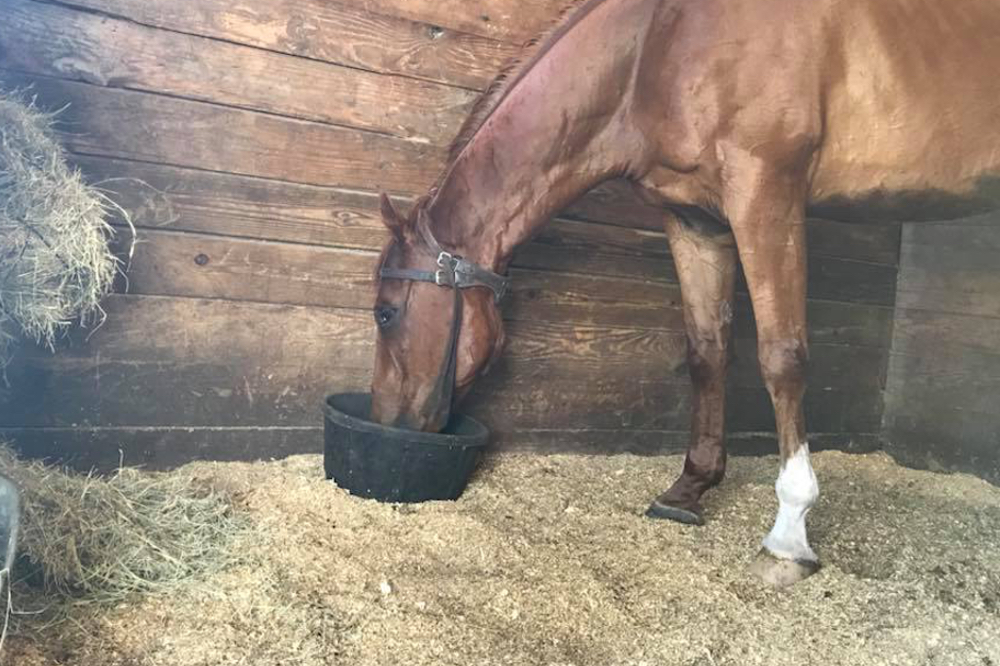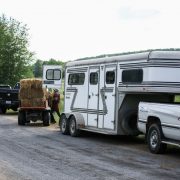Cribbing: Is It A Deal Breaker Or No Big Deal?

Cribbing. It’s one of the most heated topics I see discussed among off-the-track Thoroughbred owners on Facebook. I know barn owners who ban cribbers from their property before they would stallions. I know long-time horse owners who don’t give cribbing a second thought.
The nasty habit can lead to wear and tear on stall boards and fences, and can have some serious health effects on the horse. But that doesn’t mean it’s necessarily an alarming vice. The jury is still out on this.
I’ve met a whole bunch of cribbers through the years, nice horses that were just a little bit quirky or nervous, but never owned one. When I purchased a gelding that came off the track, after a few weeks acclimating to his new lifestyle in a hunter/jumper barn, he started to crib. The first question out of my barn owner’s mouth was, “do you want to sell him?” As if cribbing was the ultimate deal breaker.
I think it started out of boredom. My gelding spent the last two years living out in a field, and was now having to adjust to spending a few hours in a stall everyday. The first thing I did was purchase a cribbing collar for him, consult the vet about possible ulcer activity, add more hay to his diet and extend his turnout time. My gelding got a clean bill of health from the vet, but still tries to crib when he’s not wearing the collar in his stall. But the habit is manageable.
Horses are destructive whether they crib or not, and my barn owner doesn’t seem to mind having a cribber in the herd. Luckily I don’t think my guy will ever be a severe case – like the ones who can crib through the collars, wear down or even crack teeth from it. I can see how a bad experience with a cribber could turn off someone from ever owning or boarding one again. But do I think it’s deal breaker for me? Not yet, at least.
I was reminded of an old article where five professional riders were asked to describe their “once in a lifetime” horses, which seems to have gotten lost in the bottomless Internet:
“The words from their riders’ mouths that describe these most elite horses aren’t always what we might to expect. In addition to complimentary phrases like ‘bold, honest, balanced, tries his heart out, desperate not to hit a fence, never stops, catlike, cocky, feisty, and confident.’ They say things like ‘wasp-waisted, sensitive, tough on the flat, nervous, aggressive, tense, and sharp.’ One of them was a weaver. Two others were cribbers.
I think that very often the greatest horses, in the hands of lesser riders, simply vanish into oblivion and obscurity. Great horses are not often easy horses. They’re arrogant. They have big egos and idiosyncrasies and quirks and foibles. Most riders aren’t able to cope with their difficulties and the magnificence within remains undiscovered.
Horses of a lifetime do exist, but only for riders so skillful, tactful and courageous that they can unlock and reveal the brilliance of their equine partners.”


